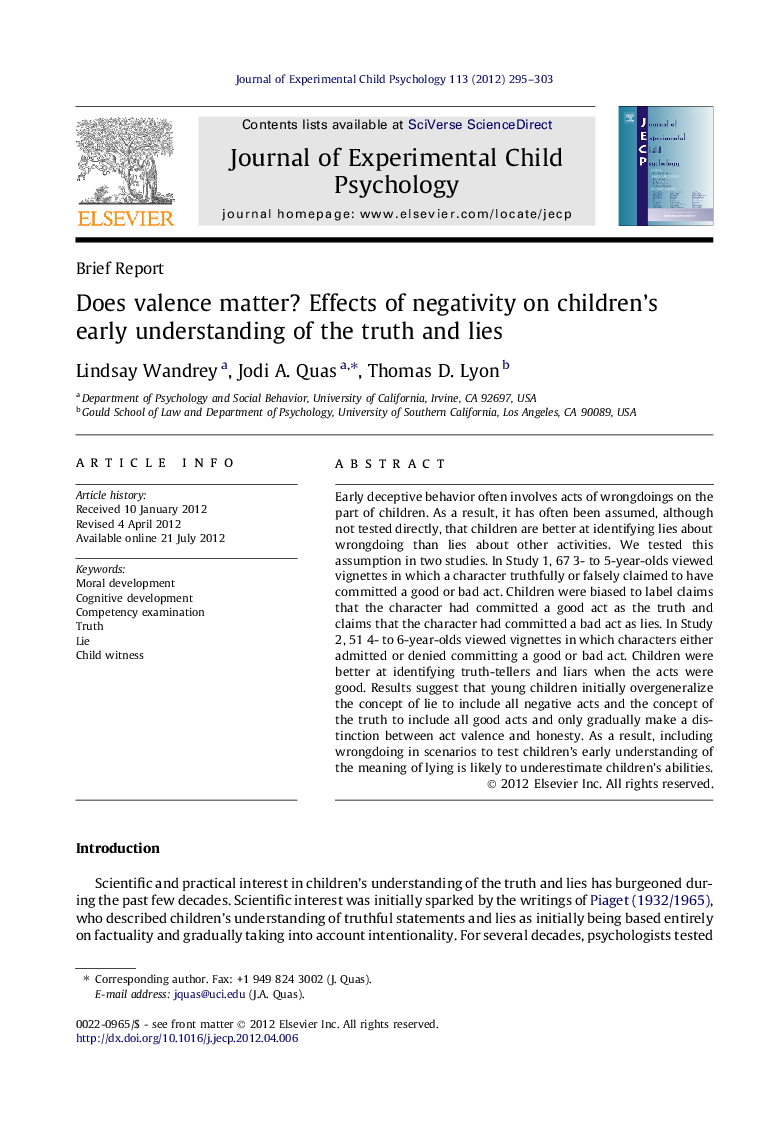| Article ID | Journal | Published Year | Pages | File Type |
|---|---|---|---|---|
| 918299 | Journal of Experimental Child Psychology | 2012 | 9 Pages |
Early deceptive behavior often involves acts of wrongdoings on the part of children. As a result, it has often been assumed, although not tested directly, that children are better at identifying lies about wrongdoing than lies about other activities. We tested this assumption in two studies. In Study 1, 67 3- to 5-year-olds viewed vignettes in which a character truthfully or falsely claimed to have committed a good or bad act. Children were biased to label claims that the character had committed a good act as the truth and claims that the character had committed a bad act as lies. In Study 2, 51 4- to 6-year-olds viewed vignettes in which characters either admitted or denied committing a good or bad act. Children were better at identifying truth-tellers and liars when the acts were good. Results suggest that young children initially overgeneralize the concept of lie to include all negative acts and the concept of the truth to include all good acts and only gradually make a distinction between act valence and honesty. As a result, including wrongdoing in scenarios to test children’s early understanding of the meaning of lying is likely to underestimate children’s abilities.
► We examined the influence of wrongdoing on 3- to 6-year-old’s understanding of truth and lies. ► Two studies varied the veracity and valence of character statements in a series of vignettes. ► Young children initially overgeneralized the concept of lie to include all negative acts. ► Young children also overgeneralized the concept of truth to include all good acts. ► Older children understood the distinction between act valence and honesty.
